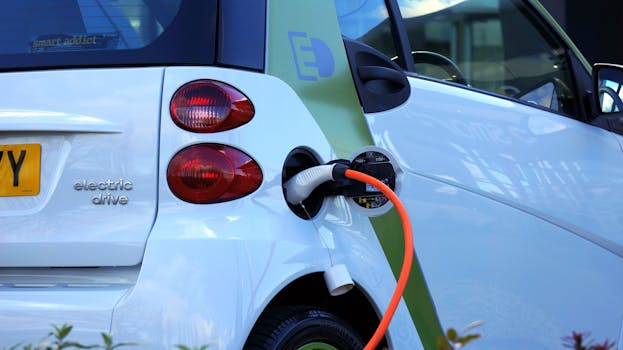Electric Luxury Cars
Electric luxury cars combine cutting-edge technology with elegant design, offering an environmentally friendly alternative to traditional high-end vehicles. These cars provide exceptional comfort and performance, becoming the preferred choice for discerning consumers. In this article, we will explore the standout features of electric luxury cars, the leading brands in the market, and future trends shaping this exciting sector.
Leading Brands in Electric Luxury Cars
Several automotive giants have established themselves in the electric luxury car market. Tesla, recognized as a pioneer, continues to impress with its Model S and Model X. These cars feature impressive range, advanced technology, and luxurious interiors. Tesla's Autopilot also offers a glimpse into the future of autonomous driving.
Porsche is another key player with its Taycan series. Known for high-performance sports cars, Porsche has successfully entered the electric arena. The Taycan combines the brand's renowned driving dynamics with zero-emission technology, providing an exhilarating yet eco-friendly experience.
Audi's e-tron series exemplifies the blend of luxury and sustainability. The e-tron SUVs come equipped with advanced infotainment systems, plush interiors, and powerful electric powertrains. Audi's commitment to electrification is evident in its expanding lineup of e-tron models.
BMW's i series, particularly the i8 and iX, showcases the brand's dedication to innovation. These models feature futuristic designs, robust electric motors, and a range of high-tech features. BMW emphasizes both performance and sustainability in its approach to electric luxury.
Innovative Features of Electric Luxury Cars
Electric luxury cars are equipped with innovative features that enhance convenience and driving pleasure. Regenerative braking stands out by capturing energy during braking and feeding it back into the battery. This not only extends the vehicle's range but also ensures a smoother driving experience.
Advanced infotainment systems are another highlight. Brands like Tesla and Audi offer large touchscreen interfaces that control various functions such as navigation and climate settings. These systems often include voice control and smartphone connectivity for seamless access.
Driver assistance technologies are prioritized in luxury electric cars. Features like adaptive cruise control, lane-keeping assist, and automatic emergency braking enhance safety and reduce driver fatigue. Some models even offer semi-autonomous driving capabilities.
The interiors of these vehicles are crafted with premium materials and meticulous attention to detail. From leather upholstery to customizable ambient lighting, every element is designed for maximum comfort and elegance. Many electric luxury cars also feature panoramic sunroofs that create an open cabin atmosphere.
Performance and Range
Performance is crucial for luxury car buyers, and electric vehicles excel in this area. Electric motors deliver instant torque, resulting in rapid acceleration that rivals or surpasses traditional gasoline engines. For example, the Porsche Taycan Turbo S can accelerate from 0 to 60 mph in just 2.6 seconds.
The range is another important factor for electric vehicles. Advances in battery technology have significantly extended the range of modern electric luxury cars. Tesla's Model S Long Range Plus offers over 370 miles on a single charge, making it ideal for long-distance travel.

The charging infrastructure has also improved, with more fast-charging stations available across various regions. Many manufacturers provide home charging solutions for convenient overnight recharging. Additionally, some brands offer complimentary access to extensive charging networks as part of their ownership experience.
| Model | 0-60 mph (seconds) | Range (miles) |
|---|---|---|
| Tesla Model S Long Range Plus | 3.7 | 370+ |
| Porsche Taycan Turbo S | 2.6 | 201 |
| Audi e-tron GT | 3.9 | 238 |
| BMW iX xDrive50 | 4.6 | 324 |
Sustainability and Environmental Impact
The shift towards electric luxury cars is driven by environmental awareness among consumers and regulatory pressures on automakers to reduce emissions. Electric vehicles produce zero tailpipe emissions, significantly lowering their environmental footprint compared to traditional internal combustion engine vehicles.
Many manufacturers are adopting sustainable practices in their production processes. For instance, BMW uses recycled materials in its i series interiors and sources renewable energy for its factories (bmwgroup.com). Similarly, Audi has committed to carbon-neutral production at its Brussels plant where the e-tron is manufactured (audi.com).
The lifecycle analysis of electric vehicles indicates lower overall emissions when considering manufacturing and battery recycling factors (ScienceDirect). Innovations in battery technology aim to further reduce environmental impact by improving efficiency and recyclability.
The Future of Electric Luxury Cars
The future of electric luxury cars looks promising with continuous advancements in technology and increasing consumer acceptance (Forbes.com). Autonomous driving features are expected to become more prevalent, enhancing safety and convenience. Manufacturers are investing heavily in research and development to bring fully autonomous vehicles to market within the next decade (AutoWeek.com).
Solid-state batteries represent another significant breakthrough on the horizon. These batteries promise higher energy density, faster charging times, and improved safety compared to current lithium-ion batteries (TheVerge.com). Companies like Toyota are leading the charge in developing solid-state battery technology.
The integration of artificial intelligence (AI) will further enhance the capabilities of electric luxury cars (Wired.com). AI-driven systems can optimize energy usage, predict maintenance needs, and provide personalized driving experiences based on individual preferences.
Conclusion
Electric luxury cars epitomize the fusion of sustainability and sophistication. With leading brands like Tesla, Porsche, Audi, and BMW pushing innovation boundaries, these vehicles offer exceptional performance without compromising comfort or style. As technology evolves, we can expect even greater advancements in this dynamic market segment.
For consumers seeking an eco-friendly yet luxurious driving experience, electric cars present a compelling option that aligns with modern values of sustainability and technological excellence.